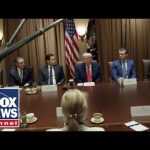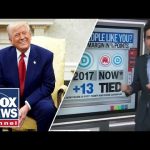High-stakes nuclear negotiations between the United States and Iran began Saturday in Oman, with President Trump’s administration pushing for rapid concessions while Tehran seeks sanctions relief through indirect talks mediated by Omani officials. The discussions mark the first diplomatic engagement between the two nations since Trump withdrew from the 2015 nuclear deal, with tensions soaring over Iran’s rapidly advancing uranium enrichment program and escalating Middle East conflicts.
have set clear red lines, demanding Iran cease all uranium enrichment near weapons-grade levels and allow unrestricted international inspections of nuclear facilities. President Trump reiterated his threat of military strikes if talks collapse, stating Israel would likely lead any offensive against Iranian nuclear sites. The U.S. delegation, led by envoy Steve Witkoff, emphasized that “dismantling Iran’s nuclear capabilities remains non-negotiable,” while leaving room for “compromise on secondary issues.”
entered the talks cautiously, with Supreme Leader Ali Khamenei granting negotiators limited authority to discuss temporary measures like freezing uranium stockpiles at 60% enrichment. Tehran continues insisting its nuclear program is peaceful, despite Western intelligence confirming its capacity to produce multiple warheads within months. Iranian state media framed the talks as a test of American “seriousness,” while hardliners warned of retaliatory measures if pressured too aggressively.
loom large, with U.S. allies like Israel and Saudi Arabia expressing skepticism about any agreement that leaves Iran’s nuclear infrastructure intact. Analysts note Tehran has strengthened alliances with Russia and China during the negotiating period, while continuing proxy attacks through groups like Hezbollah and Yemen’s Houthi rebels. The collapse of Syria’s Bashar al-Assad regime and ongoing Gaza conflict have further complicated efforts to stabilize the region.
remains uncertain, with both sides posturing publicly while exploring potential interim agreements. Conservative foreign policy experts argue any deal must include binding verification measures and irreversible rollbacks of Iran’s nuclear advances. With UN sanctions “snapback” provisions expiring in October, the Trump administration faces pressure to secure concrete commitments before Tehran crosses the weapons threshold. As talks continue, military assets remain on high alert across the Persian Gulf, underscoring the volatile stakes of this diplomatic gambit.




